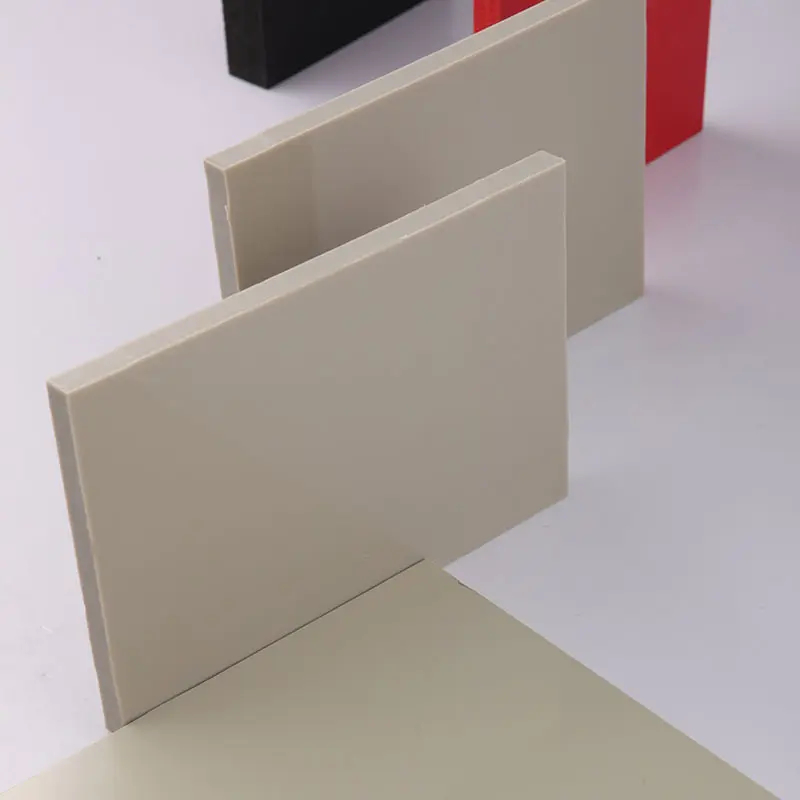พ.ย. . 04, 2024 11:38 Back to list
Understanding the Benefits and Uses of HDPE Plastic Pipes in Various Applications
Understanding HDPE Plastic Pipes Benefits, Applications, and Features
High-Density Polyethylene (HDPE) plastic pipes have emerged as a formidable contender in the realm of piping solutions, catering to various industries due to their exceptional properties and versatility. Known for their strength, durability, and resistance to various environmental conditions, HDPE pipes are ideal for a broad range of applications. In this article, we will explore the benefits, applications, and features of HDPE plastic pipes, and why they are increasingly becoming the go-to choice for engineers and contractors worldwide.
What is HDPE?
High-Density Polyethylene (HDPE) is a thermoplastic polymer made from petroleum. Its high-density structure allows it to withstand higher temperatures and stresses compared to other types of plastic. The unique molecular composition results in excellent chemical resistance and durability, making HDPE pipes suitable for demanding environments.
Benefits of HDPE Plastic Pipes
1. Strength and Durability One of the primary advantages of HDPE pipes is their robust nature. They can easily withstand heavy loads, making them suitable for underground installations and industrial applications. Their resistance to environmental stressors such as UV radiation, corrosion, and chemicals ensures a long service life, often exceeding 50 years.
2. Flexibility HDPE pipes exhibit a remarkable degree of flexibility, allowing them to bend without breaking. This characteristic simplifies installation, as the pipes can be bent around obstacles and in challenging terrains without the need for additional fittings.
3. Lightweight Compared to traditional materials like steel or concrete, HDPE pipes are significantly lighter. This reduces transportation costs and simplifies installation, making it easier to handle large quantities of pipe.
4. Low Friction Loss The smooth interior surface of HDPE pipes reduces friction losses, which enhances the flow of liquids and gases. This property is particularly advantageous in water and wastewater applications, where efficient flow is paramount.
5. Environmental Considerations HDPE is 100% recyclable, making it an eco-friendly choice for piping solutions. Moreover, the production process of HDPE pipes has a lower environmental impact than that of other conventional piping materials.
Applications of HDPE Plastic Pipes
Given their unique properties, HDPE pipes are utilized across various sectors
- Water Supply Systems HDPE pipes are extensively used in municipal water supply systems due to their high durability, corrosion resistance, and low maintenance costs. They can transport drinking water safely and efficiently.
hdpe plastic pipe

- Wastewater Management The excellent chemical resistance of HDPE also makes it ideal for wastewater treatment plants and sewer systems, where the pipes are exposed to corrosive substances.
- Irrigation Systems In agriculture, HDPE pipes are favored for irrigation systems owing to their longevity and ability to withstand varying weather conditions. This helps farmers ensure a consistent water supply to their crops.
- Industrial Applications Industries that handle chemicals and other harsh substances find HDPE pipes indispensable. Their resistance to chemicals allows safe transport without degradation.
- Telecommunication HDPE is also used in the telecommunications industry for fiber optic protection conduits, where flexibility and durability are critical.
Features of HDPE Plastic Pipes
HDPE pipes come with various features that enhance their performance
- Standardized Sizes HDPE pipes comply with various standardized sizes for easy integration with existing systems.
- Joining Methods Various joining techniques, such as heat fusion, electrofusion, and compression fittings, allow for versatile installation options tailored to specific project needs.
- Pressure Ratings HDPE pipes are available in various pressure ratings, accommodating different applications and requirements.
- Color Coding Many HDPE pipes are color-coded to signify their purpose, facilitating easy identification in complex installations.
Conclusion
In conclusion, HDPE plastic pipes are transforming the landscape of piping solutions with their superior strength, flexibility, and eco-friendliness. Their applications span various industries, addressing critical needs in water supply, wastewater management, agriculture, and beyond. As technology continues to evolve, the demand for HDPE pipes is expected to grow further, solidifying their role as a staple in modern infrastructure development. Whether you are a contractor seeking reliable materials or an engineer designing efficient systems, HDPE pipes offer a myriad of benefits that make them an indispensable choice.
-
HDPE Culvert Pipe Supplier – Durable, Leak-Proof & Easy Installation Solutions
NewsJul.05,2025
-
High Transparency PVC Clear Sheet Super Transparency PVC Sheets & HDPE Cutting Board Supplier
NewsJul.04,2025
-
High-Quality PVC-M Pipe Supplier Trusted PVC Pipe Company & 75mm PVC Connection Pipe Solutions
NewsJul.04,2025
-
PVC Transparent Sheet Roll - Durable & Flexible PVC Plastic Sheet Roll for Industrial & Home Use
NewsJun.24,2025
-
High-Quality PVC PPR Pipes and Fittings Durable ERA PPR Solutions
NewsJun.10,2025
-
High-Quality Large HDPE Sheets & Large Diameter PVC Pipe Durable Large PVC Pipe Supplier
NewsJun.10,2025

